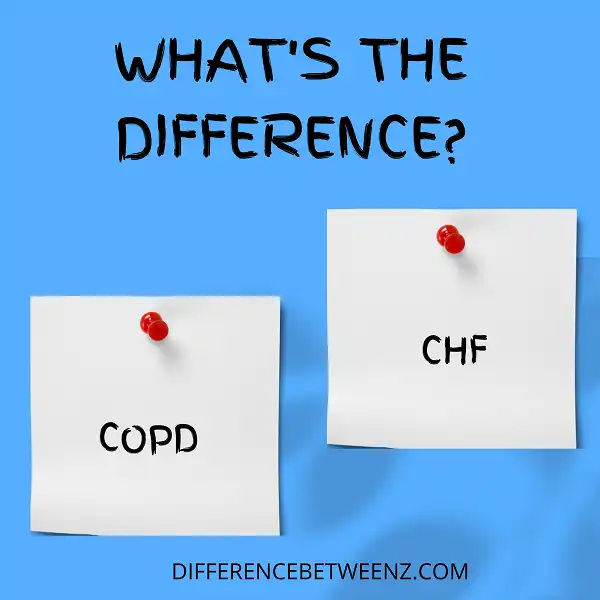Chronic Obstructive Pulmonary Disease (COPD) and Congestive Heart Failure (CHF) are two conditions with similar symptoms but have different causes. These chronic illnesses can lead to numerous complications if not properly managed, so it is important for individuals to understand the differences between them in order to know how to manage their health best. In this blog post, we will be exploring the differences between COPD and CHF, their associated symptoms, and the treatment options available.
What is COPD?
COPD, or Chronic Obstructive Pulmonary Disease, is a chronic, progressive lung condition characterized by persistent airflow limitation which limits the ability to breathe. COPD can often overlap with other disorders such as asthma and bronchitis and create an enhanced set of symptoms due to combined effects. COPD has no known cure but there are effective treatments available for optimal symptom management.
These treatments range from lifestyle changes such as exercise and smoking cessation to medical interventions such as inhalers, oxygen therapy, surgery, and more. COPD is also associated with shortness of breath, wheezing and coughing with mucus production on a regular basis. Proper diagnosis and treatment of COPD are key in helping reduce symptoms, improving quality of life, and avoiding serious complications.
What is CHF?
- CHF, or Congestive Heart Failure, is a medical condition that is most often caused by underlying heart conditions. CHF can cause the heart muscle to become weakened and unable to function properly, leading to fluid build-up in certain areas of the body.
- This can cause shortness of breath and other warning signs that require urgent medical attention. CHF is not curable, so treatment focuses on managing symptoms and improving overall functional capacity.
- It’s important for those at risk for CHF, such as patients with underlying heart conditions, to be informed about the potential risks and seek immediate medical attention if they experience any of the warning signs. Understanding CHF can help patients make more empowered decisions when it comes to their health and well-being.
Difference Between COPD and CHF
COPD and CHF are both chronic respiratory conditions, but they have some important differences that everyone should understand.
- COPD, which stands for Chronic Obstructive Pulmonary Disease, is a group of diseases that cause airflow blockage and breathing-related problems due to damage to the lungs.
- Meanwhile, CHF, or Congestive Heart Failure, results when the heart is unable to pump enough blood throughout the body and can lead to other complications like fluid buildup in the lungs.
- COPD contributes more to disability than any other form of lung disease and worsens slowly over time; however, CHF can worsen suddenly and require emergency treatment.
Understanding how COPD and CHF differ is essential in order to recognize which condition may be present, so individuals can receive the correct diagnosis and treatment.
Conclusion
The main difference between COPD and CHF is the underlying cause. COPD is caused by long-term exposure to damaging particles, such as cigarette smoke, and air pollution. These particles damage the lungs over time, making it difficult to breathe. CHF, on the other hand, is caused by heart problems that prevent the heart from pumping blood efficiently throughout the body. This can lead to fluid buildup in the lungs, making it difficult to breathe. While both conditions can make it difficult to breathe, they are different diseases with different causes. If you or someone you know has trouble breathing, be sure to consult a doctor so they can determine whether you have COPD, CHF, or another condition entirely.


